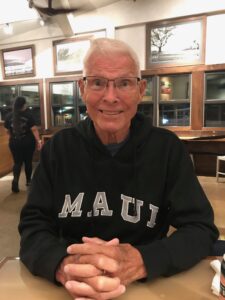Opening : Belonging, Equity and Inclusion:
9:00 – 10:15am
Description: Belonging, equity, and inclusion are fundamental principles in the built environment. As architects and designers, we are responsible for creating spaces that promote a sense of belonging for all individuals, regardless of their background, ethnicity, race, gender, sexual orientation, or ability. To achieve this, we must incorporate equity and inclusion into every aspect of our work, from the initial design concept to the final construction phase. Designing with a focus on belonging means creating spaces that are welcoming, comfortable, and accessible to everyone. This involves considering the needs and preferences of diverse populations, such as those with disabilities or those from different cultural backgrounds. It also consists in creating spaces that foster a sense of community and promote social interaction, which can lead to a greater understanding of belonging for individuals. By incorporating these principles into our work, we can create spaces that promote a sense of belonging, equity, and inclusion for all individuals. This not only benefits the individuals who occupy these spaces, but also contributes to the greater good of society as a whole. In this session, we will hear from scholars who have researched and understood these principles.
Climate Justice
10:30am – 11:45am
Description: The adverse impacts of climate change on our environment and society are becoming more evident and severe over time. These impacts are varied and unequal and need to be accounted for when planning and developing our built environment. Climate justice is a growing movement that addresses the need for equity in developing a sustainable future that is resilient to the impacts of climate change. In this session, we will hear from scholars who focus on issues such as gentrification due to climate change or policy responses and fair sustainable development to address the impacts of climate change.
Community and the New Normal
12:00 – 1:35 pm
Description: Humankind recently lived through a pandemic that has propelled changes in our behavior, lifestyles, and work. Communities have already adapted, or are preparing to adapt, their systems to these changes. The post-pandemic world presents an opportunity to embrace change and future uncertainties to develop resilience. It also allows us to reflect on issues of inequity in our built environment, which were evident during the course of the pandemic, in terms of its inability to address the needs of different population groups. During this session, scholars will present their research concerning changes that have occurred in our living, working and commuting patterns post-pandemic. They will also discuss the persistence of long-standing inequalities in urban development that require attention
Housing Belonging and Dispossession
1:50 – 3:00 pm
Description: Housing is not only a “place of great importance”, but is a determinant of mental and physical health and a base for social connection. Housing is also the nexus for political and economic systems, physical space and one’s socioeconomic position. This session on housing with scholars from urban planning and psychology, explores the growing conflict, politics and economy around home “places”, and why dispossession and the loss of home affects us so deeply.
Closing Plenary: Sense of Place/Phenomenology
3:20 – 5:00 pm
Description: The sense of place is a concept that has been discussed by philosophers, geographers, and sociologists for decades. It refers to the emotional and psychological connections that individuals or groups have with their surroundings. This sense of place is often tied to personal memories, experiences, and social practices and can shape our understanding and interactions with the world around us. On the other hand, a phenomenology is a philosophical approach that describes the essential structures of human experience. In place studies, phenomenological approaches aim to capture the ways in which individuals experience and relate to their environment and how this experience can shape their sense of place. This plenary session invites leading scholars to offer their unique perspectives on the concept of a sense of place and the phenomenological approaches to place studies.
Dr. Bob Mugerauer Memorial Event
5:00 – 8:00 pm
